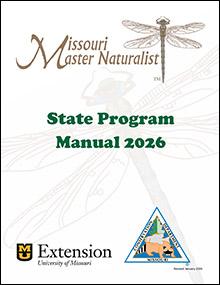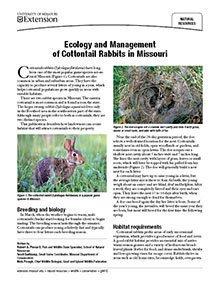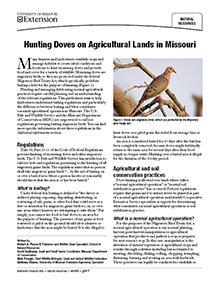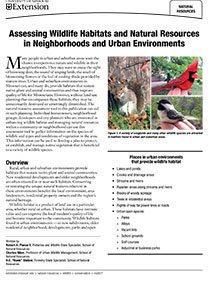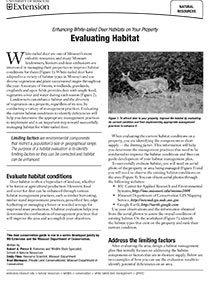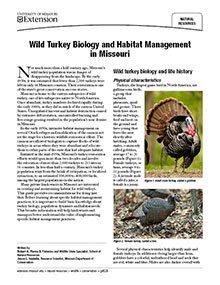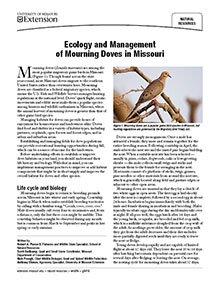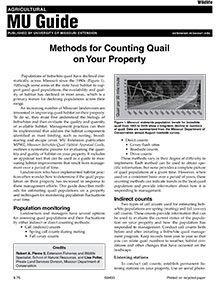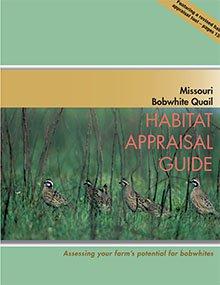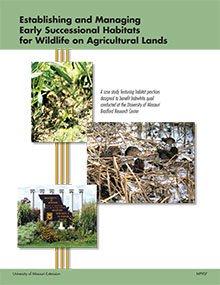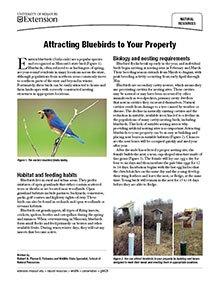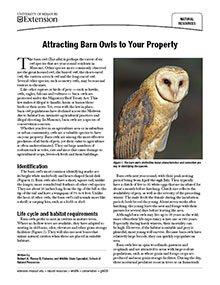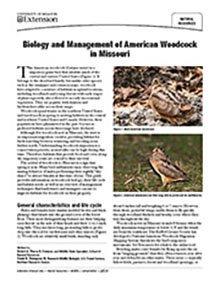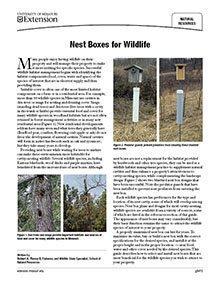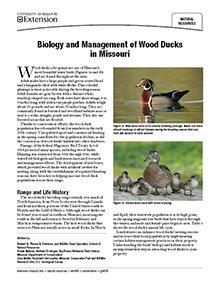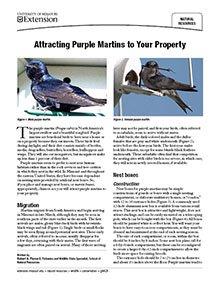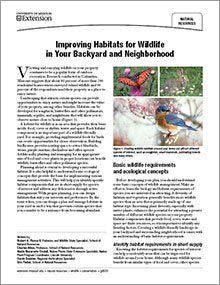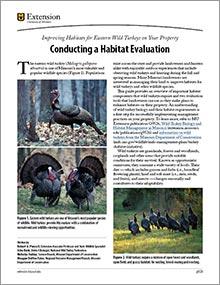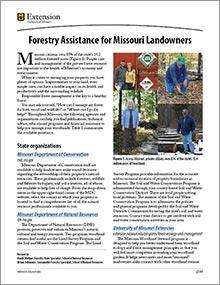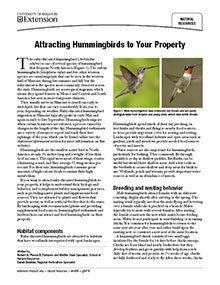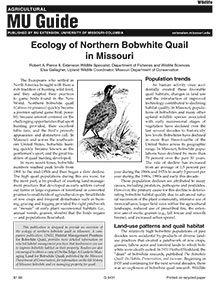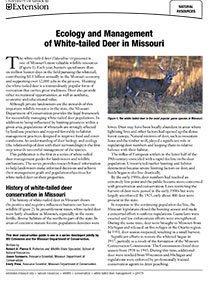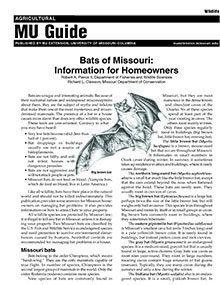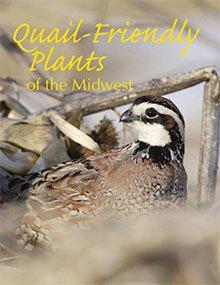The following publications cover topics related to Missouri Master Naturalist. For a complete list of MU Extension publications, visit the main Publications page.
Missouri Master Naturalist State Program Manual
Revised
Learn about the Missouri Master Naturalist program. Along with an overview of this statewide volunteer conservation program, this manual details certification, training and volunteer service requirements and offers operation and program marketing tips.
Ecology and Management of Cottontail Rabbits in Missouri
Reviewed
This publication describes how landowners can create habitat that will attract cottontails to their property.
Hunting Doves on Agricultural Lands in Missouri
Reviewed
Learn about baiting regulations and the differences between baiting and what constitutes a normal agricultural operation in Missouri.
Assessing Wildlife Habitats and Natural Resources in Neighborhoods and Urban Environments: A Planning Guide for Wildlife Habitats in Urban Areas
Reviewed
Use this assessment tool to get information on the wildlife and vegetation in an area to develop a plan to protect, or establish, and manage native vegetation.
Enhancing White-Tailed Deer Habitats on Your Property: Evaluating Habitat
Reviewed
White-tailed deer are one of Missouri’s most valuable resources, and many landowners are interested in managing properties to improve their habitat conditions.
Wild Turkey Biology and Habitat Management in Missouri
Reviewed
Missouri's wild turkey population was in danger of disappearing. Visit our site to learn about Wild Turkey Biology and Habitat Management in Missouri.
Ecology and Management of Mourning Doves in Missouri
Reviewed
Mourning doves are among the most popular migratory game birds in Missouri.
Methods for Counting Quail on Your Property
Reviewed
This guide describes methods for estimating quail populations on a property and techniques for monitoring population fluctuations over time.
Missouri Bobwhite Quail Habitat Appraisal Guide
Reviewed
The Missouri Bobwhite Quail Habitat Appraisal Guide helps landowners assess and improve their property's potential to support bobwhite quail populations.
Establishing and Managing Early Successional Habitats for Wildlife on Agricultural Lands
Reviewed
Learn to enhance wildlife habitats on farms with practical strategies for quail, grassland birds, and rabbits, integrating conservation with crop management.
Attracting Bluebirds to Your Property
Reviewed
Discover how to attract bluebirds by building and placing nest boxes in suitable habitats.
Attracting Barn Owls to Your Property
Reviewed
Learn how to create, place and maintain nesting boxes to attract barn owls to your property. They are desirable for controlling nuisance rodent populations.
Biology and Management of the American Woodcock in Missouri
Reviewed
This guide provides information on woodcock biology, their life cycle and habitat needs so landowners can improve habitats for woodcock on their property.
Nest Boxes for Wildlife
Reviewed
Suitable cover is often limited on a farm or in a residential area. Providing nest boxes can make these environments more habitable for wildlife.
Biology and Management of Wood Ducks in Missouri
Reviewed
Wood ducks are one of Missouri's most beautiful water birds. Thanks to conservation efforts, the wood duck population has rebounded.
Attracting Purple Martins to Your Property
Reviewed
Purple martins are beneficial birds to have around because they eat insects. Learn how to manage nest boxes to attract purple martins to your property.
Improving Habitats for Wildlife in Your Backyard and Neighborhood
Reviewed
Increasing plant diversity, especially with native plants, enhances the potential for attracting more wildlife species to your property. Create habitat that provides their basic needs: food, cover, water and space. Learn how in this MU Extension guide.
Improving Habitats for Eastern Wild Turkeys on Your Property: Conducting a Habitat Evaluation
New
Get an overview of important habitat components that wild turkeys require and two evaluation tools you can use as you make plans to enhance habitats on your property.
Forestry Assistance for Missouri Landowners
Revised
Learn what federal and state agencies and private organizations are available to help Missouri landowners enhance the health and productivity of their woodland.
Attracting Hummingbirds to Your Property
Revised
Learn how to attract ruby-throated hummingbirds to your property by understanding their behavior and providing suitable habitat and food sources.
Ecology and Management of White-Tailed Deer in Missouri
Reviewed
The white-tailed deer is one of Missouri’s most valuable wildlife. Visit our site to learn about the Ecology and Management of White-Tailed Deer in Missouri.
Bats of Missouri: Information for Homeowners
Revised
Discover the diverse bat species in Missouri, their ecological benefits, and guidance on safely managing bat encounters in homes.
Quail-Friendly Plants of the Midwest
Reviewed
Learn how to identify plants important to bobwhites in the Midwest so that you can critically evaluate the food and cover components of habitat on your land.
